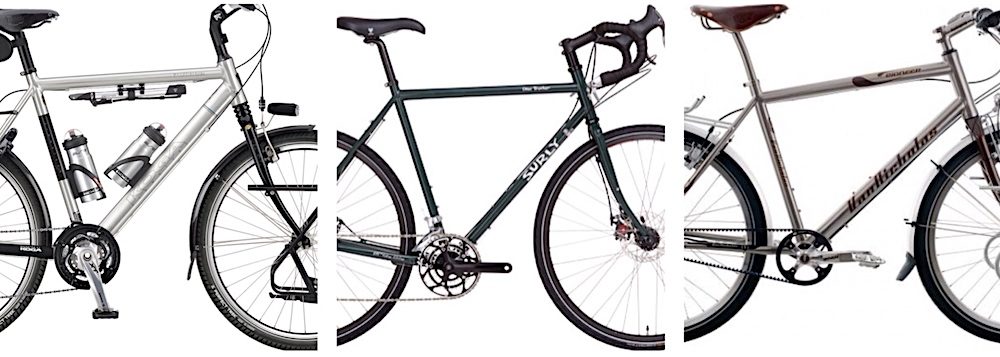Alloy vs. Steel Frame: Which is the Superior Choice for Your Bike?
When it comes to choosing a bicycle, one of the most critical decisions you’ll make is selecting the frame material. Two of the most popular options are alloy and steel frames, each with its own set of advantages and disadvantages. In this comprehensive guide, we will delve into the world of bicycle frames, exploring the strengths and weaknesses of alloy and steel frames, helping you make an informed decision on which one is better suited to your needs. Which is better alloy or steel frame?
The Battle of the Materials: Alloy and Steel
Alloy Frames: Lightweight and Nimble
Alloy frames are made primarily from aluminum, though they may also contain other metals such as magnesium, zinc, or copper. These frames are favored by many cyclists for their remarkable lightweight properties. Here’s why alloy frames are worth considering:
1. Weight Advantage
One of the standout features of alloy frames is their weight. Aluminum is significantly lighter than steel, making alloy-framed bikes easier to handle, particularly on uphill climbs. If you’re a competitive cyclist or simply want a nimble, responsive ride, an alloy frame could be your ideal choice.
2. Corrosion Resistance
Aluminum frames are naturally resistant to corrosion, which means they can withstand exposure to moisture and varying weather conditions without deteriorating. This feature makes alloy-framed bikes an excellent option for those who frequently ride in wet or humid environments.
3. Stiffness and Efficiency

Alloy frames tend to be stiffer than steel frames, resulting in more efficient power transfer from your pedaling to the wheels. This stiffness can translate to a snappy and responsive ride, particularly when sprinting or cornering.
Steel Frames: Timeless Durability and Comfort
Steel frames, on the other hand, have been a staple in the bicycle industry for decades. While they may not be as lightweight as their alloy counterparts, steel frames offer unique advantages:
1. Exceptional Durability
Steel is renowned for its durability and longevity. A well-maintained steel frame can last for decades, making it an excellent choice for those who want a bike that stands the test of time. This durability is particularly appealing to touring cyclists and commuters who rely on their bikes day in and day out.
2. Comfortable Ride
Steel frames are celebrated for their ability to absorb road vibrations and provide a smooth, comfortable ride. This feature makes them an ideal choice for long-distance cyclists and anyone who values a less jarring experience on rough roads.
3. Affordability
Steel frames are often more affordable than their alloy counterparts. If you’re working with a limited budget, a steel-framed bike can provide excellent value for your money, especially when you consider its long-term durability.
Making the Choice: Factors to Consider
Now that you understand the key characteristics of alloy and steel frames, let’s delve into the factors you should consider when making your decision:
1. Riding Style
Your preferred riding style plays a significant role in determining which frame material is best for you. If you’re a competitive cyclist who values speed and agility, an alloy frame’s lightweight and stiffness may be your top priority. Conversely, if you prioritize comfort and plan to tackle long rides or touring, a steel frame’s durability and vibration absorption could be more appealing.
2. Budget
Your budget will also influence your decision. Alloy-framed bikes typically come at a higher price point due to the cost of materials and manufacturing processes. Steel-framed bikes are often more budget-friendly, making them accessible to a broader range of cyclists.
3. Maintenance
Consider how much time and effort you’re willing to invest in bike maintenance. Alloy frames require less maintenance due to their resistance to corrosion, whereas steel frames may need more attention to prevent rust. If you’re not keen on frequent maintenance tasks, an alloy frame may be the more convenient choice.
4. Weight Tolerance
Another crucial factor is your weight and the intended use of your bike. Alloy frames have weight limits that you must not exceed to ensure the frame’s structural integrity. Steel frames, with their exceptional durability, can often accommodate heavier riders and heavier loads, making them suitable for touring or cargo bikes.
5. Aesthetic Preferences
Let’s not forget the aesthetics. Some cyclists have strong preferences for the look of one material over the other. Alloy frames often have a modern, sleek appearance, while steel frames exude a classic, timeless charm. Your personal taste may sway your decision.
Conclusion: The Right Frame for You
In the battle of alloy vs. steel frames, there is no clear winner. The choice ultimately comes down to your individual needs, preferences, and riding style. Alloy frames excel in terms of weight and efficiency, making them ideal for speed demons and competitive cyclists. Steel frames offer unparalleled durability and comfort, making them a top choice for those seeking a reliable, long-lasting ride. For the ebike specialist bike frames see here.
Before making your decision, take the time to test ride both alloy and steel-framed bikes. Consider how each frame material feels under your control and how it aligns with your cycling goals. Regardless of your choice, remember that both alloy and steel frames have their unique strengths, and either can provide you with countless hours of cycling enjoyment.




